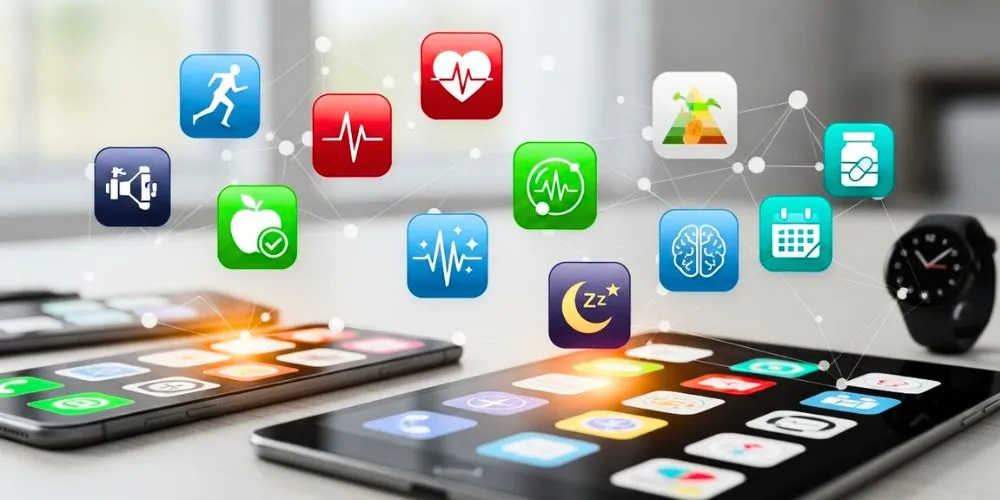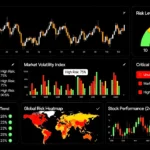In the digital transformation era, health apps have emerged as powerful tools, revolutionizing how individuals manage their well-being. This article explores the landscape of health apps, their significance, evolution, impact on healthcare, and their transformative potential for personalized wellness.
Significance of Health Apps
Health apps stand at the intersection of technology and healthcare, providing users unprecedented access to information, monitoring tools, and personalized solutions for managing their health.
Personalized Wellness
One of the key contributions of health apps is their ability to support personalized wellness journeys. These apps cater to individual needs, offering tailored advice, tracking capabilities, and insights based on user data. From fitness tracking to nutrition planning, it empowers users to take charge of their well-being on their own terms.
Accessibility to Health Information
Health apps bridge the gap between individuals and health information, offering a wealth of knowledge at users’ fingertips. Users can access articles, videos, and expert advice on various health topics, fostering health literacy and informed decision-making.
Remote Monitoring and Telehealth
They have facilitated remote monitoring of health metrics and the rise of telehealth services. Individuals can track vital signs, receive virtual consultations, and even share real-time data with healthcare professionals, enhancing access to care, especially in remote or underserved areas.
Evolution of Health Apps
The landscape of health apps has undergone a dynamic evolution, driven by technological advancements, user demands, and a growing emphasis on preventive healthcare.
Fitness and Activity Tracking
Early health apps primarily focused on fitness and activity tracking. They evolved from simple pedometers to sophisticated apps that monitor various fitness metrics, including steps taken, calories burned, and even sleep patterns.
Nutrition and Diet Management
Nutrition and diet management apps gained popularity, allowing users to log meals, track calorie intake, and receive personalized dietary recommendations. These apps often incorporate features like barcode scanning for easy food tracking.
Mental Health and Well-being
As awareness of mental health issues grew, it expanded to include mental well-being features. Meditation apps, mood trackers, and stress management tools became integral components, addressing the holistic nature of health.
Chronic Disease Management
Health apps have played a crucial role in managing chronic diseases. Apps designed for diabetes, hypertension, and asthma enable users to monitor symptoms, track medication adherence, and communicate with healthcare providers for timely interventions.
Impact on Healthcare
Integrating health apps into healthcare systems has profoundly impacted the delivery and consumption of healthcare.
Patient Empowerment
Health apps empower patients to participate in their own care actively. Patients can monitor their health, set goals, and communicate effectively with healthcare providers, fostering a collaborative and patient-centered approach to healthcare.
Data-Driven Insights
The data collected by health apps provides valuable insights into individual health trends and population health. Aggregated and anonymized data play a crucial role in informing research, developing preventive strategies, and supporting public health initiatives.
Telemedicine and Remote Consultations
The rise of telemedicine has made healthcare more accessible. Users can consult healthcare professionals from the comfort of their homes, reducing distance barriers and improving timely access to medical advice.
Public Health Campaigns
Health apps support public health campaigns by disseminating information, promoting healthy behaviors, and facilitating early detection of health issues. It contributes to public health initiatives, from vaccination reminders to pandemic tracking.
Transformative Potential for Personalized Wellness
The transformative potential of health apps lies in their ongoing evolution, technological advancements, and role in shaping the future of personalized wellness.
Wearable Technology Integration
Integrating health apps with wearable technologies, such as smartwatches and fitness trackers, enhances the accuracy and scope of health data collection. Wearables provide real-time monitoring and a seamless user experience, contributing to a more comprehensive approach to personalized wellness.
Artificial Intelligence (AI) and Predictive Analytics
Incorporating AI and predictive analytics into health apps enables more sophisticated analysis of health data. These technologies can predict health trends, offer personalized recommendations, and alert users and healthcare providers to potential health risks.
Gamification for Health
Gamification elements, including challenges, rewards, and interactive features, are being increasingly integrated into health apps. This approach enhances user engagement, making health and wellness activities more enjoyable and sustainable.
Interoperability and Health Data Exchange
The future of health apps involves enhanced interoperability and seamless exchange of health data between various platforms and healthcare systems. It ensures a cohesive and comprehensive view of an individual’s health history, regardless of the app or provider.
Conclusion
Health apps have become integral companions in individuals’ quests for well-being, providing tools for personalized health management, access to information, and connectivity with healthcare providers. As technology advances, the transformative potential of health apps will shape the future of healthcare, offering innovative solutions for personalized wellness and empowering individuals to lead healthier, more informed lives.





